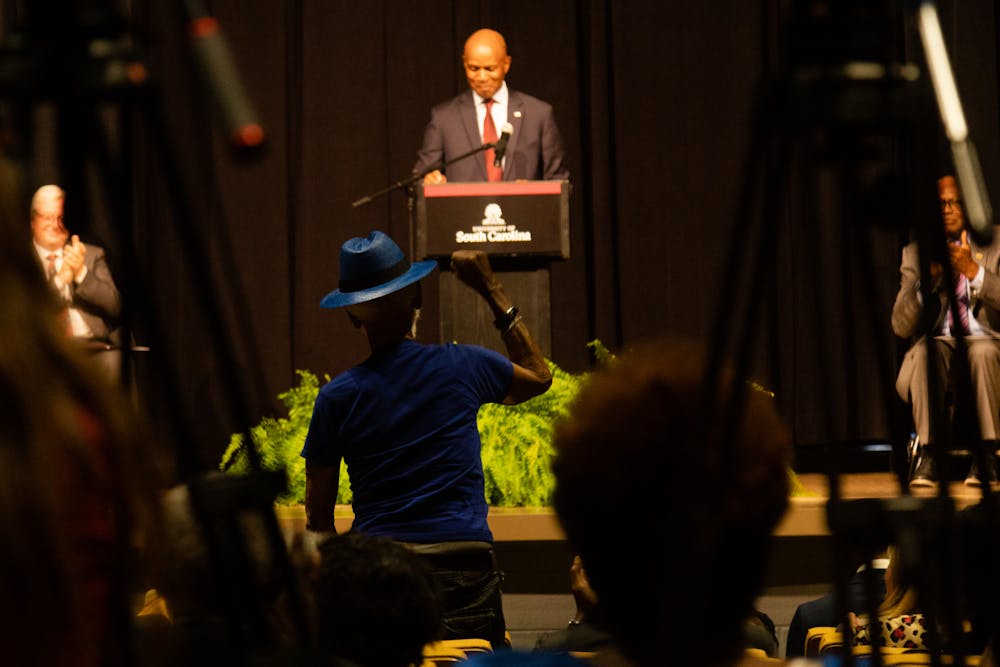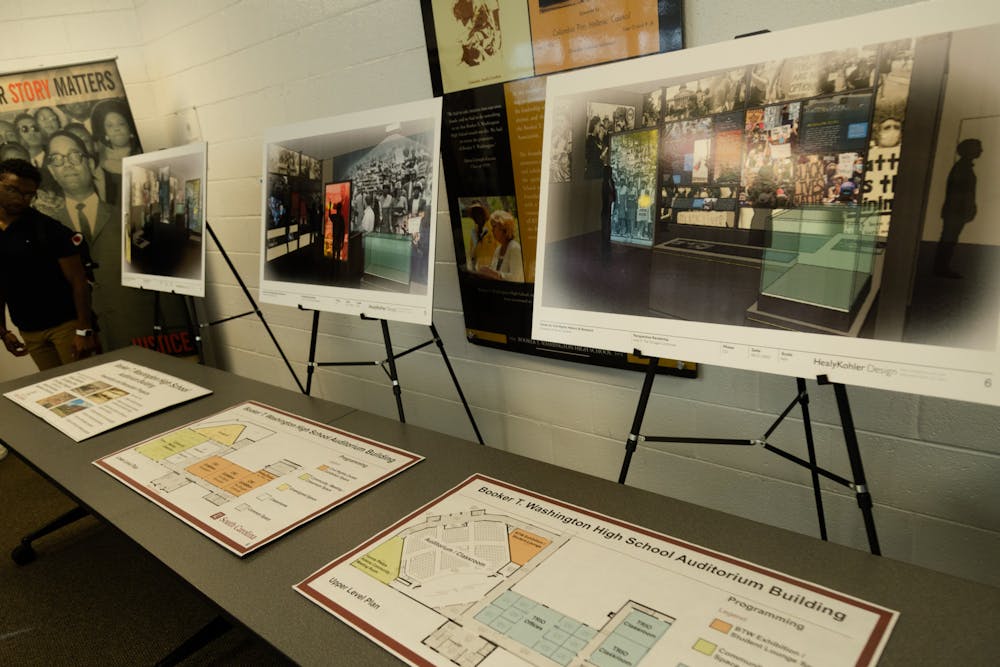The National Park Service (NPS) will donate $3.4 million to the university's Center for Civil Rights History and Research.
The grant, announced by the university at the Booker T. Washington auditorium Tuesday, is part of a five-year agreement to further commemorate the civil rights movement in South Carolina.
The grant will be combined with additional funding for a total of $5 million. The center plans to spend $1.5 million on restoring the Booker T. Washington building and $3.4 million on program needs like hiring more staff and partnering with local organizations like the South Carolina NAACP and South Carolina's historically black colleges and universities.
The NPS partnered with USC earlier this year and named both the Center for Civil Rights History and Research and the university itself as a part of the African American Civil Rights Network, which aims to preserve buildings and sites related to the civil rights movement.
With this new grant, the center hopes to increase education and programming opportunities by growing its collections, training K-12 teachers, hosting public programs and developing new exhibits.
Additionally, Secretary of the Interior Deb Haaland said the partnership will help fund an annual "Women in the Movement" lecture series that will highlight trailblazing women and a tour of historic civil rights sites in Columbia. She said she sees the grant as an opportunity to help preserve more of the nation's history.
"We must invest in opportunities that offer the chance for the true and honest stories straight from survivors and their descendants," Haaland said. "That is how we can truly and honestly face the fact that the American story has not always included all of us. It's when we explore injustice that we can ensure that it never happens again."
The expansion of the center also represents efforts by the university and government officials to recognize South Carolinians' contributions to the civil rights movement.
Rep. James E. Clyburn said South Carolinians like Sarah Mae Flemming, who experienced violence due to where she sat on a bus over 17 months before Rosa Parks, are often under-recognized. He said he hoped the center will become a hub for the community to learn about South Carolina's role in the fight for civil rights.
"I was told that South Carolinians never contributed anything. That's because we have been negligent in putting out a place in history for everybody to learn from," Clyburn said. "This center will prevent that sort of thing."

Many alumni of the Booker T. Washington High School attended the event, including graduates as far back as the class of 1943.
Bobby Donaldson, the executive director of the university's Center for Civil Rights History and Research, dedicated the success of the center to these alumni and the community members of Ward One, a historically Black community that used to reside in the area surrounding the school.
"Although the University of South Carolina owns this building, today we set the record straight," Donaldson said. "This building belongs to the people who are here today."
The high school was the first public school for Black students in Columbia and hosted a number of civil rights leaders as teachers and students throughout its six-decade history.
The auditorium building was acquired by USC after the school's closure in 1974 and currently holds the university’s Justice for All exhibit that features oral history recordings, photographs, manuscripts and other materials detailing the civil rights movement in South Carolina.
While most of the old building is gone, Donaldson said these new efforts will ensure the school's legacy lives on within the community and the students who learned and continue to learn within its walls.
"That auditorium is where I teach History 112 to 400 students, so every day our undergraduates come into this building for classes, for that experience, but many do not know they're walking into a historic space," Donaldson said. "With further enhancements, every student who enters from our campus or from Wheat Street will know they're entering a place that has significant meaning in the history, not only of this community, but in the history of this nation."

